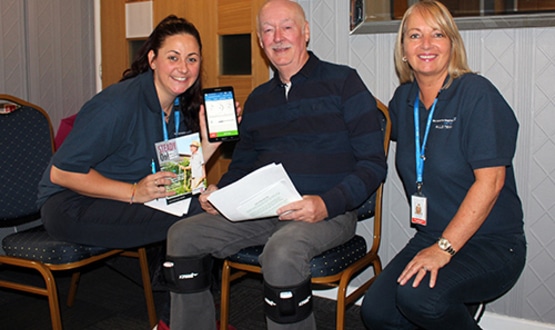East Lancashire Hospitals Trust adopts fall-preventing wearables

East Lancashire Hospitals NHS Trust has started using wearable technology designed to prevent falls in older people.
The technology consists of pads containing sensors that are worn just below the knee, which measure the balance and mobility of the wearer. Measurements taken by the sensors then determine whether a person is at a low, medium or high risk of falling.
This information can be viewed on a tablet or mobile device, and includes colour-coded results addressing any problems in gait or mobility. Care providers can then offer advice about what activities or exercises a person can perform to improve mobility and reduce their risk of falling.
The solution is underpinned by Kinesis’ Quantative Timed Up and Go (QTUG) technology, which was chosen specifically by the Academic Health Science Network for the North West Coast and Lancashire County Council, which commissioned the project.
QTUG assesses the wearer’s risk of falling by comparing data collected from the sensors with population data containing average mobility values, based on age and sex. This includes measurements for walking, variability, symmetry, transfers and turning.
The technology is being used by the Community Falls Team at Pendle Community Hospital in Nelson, Lancashire, to screen older patients for mobility impairment. It had been adopted as part of East Lancashire Hospitals’ Steady On initiative, set up to reduce mortality, admissions and ambulance call-outs from accidental falls.
Falls remain the most common cause of hospital admission, the trust said, and the risk of being injured by a fall increases as a person gets older.
It is estimated that around 30% of adults over 65 fall each year. Diane Lloyd, Steady On practitioner, explained that a fall often led to a “fear of falling” that results in older people becoming less active, which can lead to further physical and mental problems.
“In addition to the fear of falling, other psychological issues can present themselves, such as social isolation, loneliness and depression,” said Lloyd.
The Steady On team plans to demonstrate QTUG’s potential at events across the county in the coming weeks.
A report from the National Institute for Health Research (NIHR) in November argued that new wearable and implantable technologies could provide significant benefits to patients, but were being held back by a lack of research.





